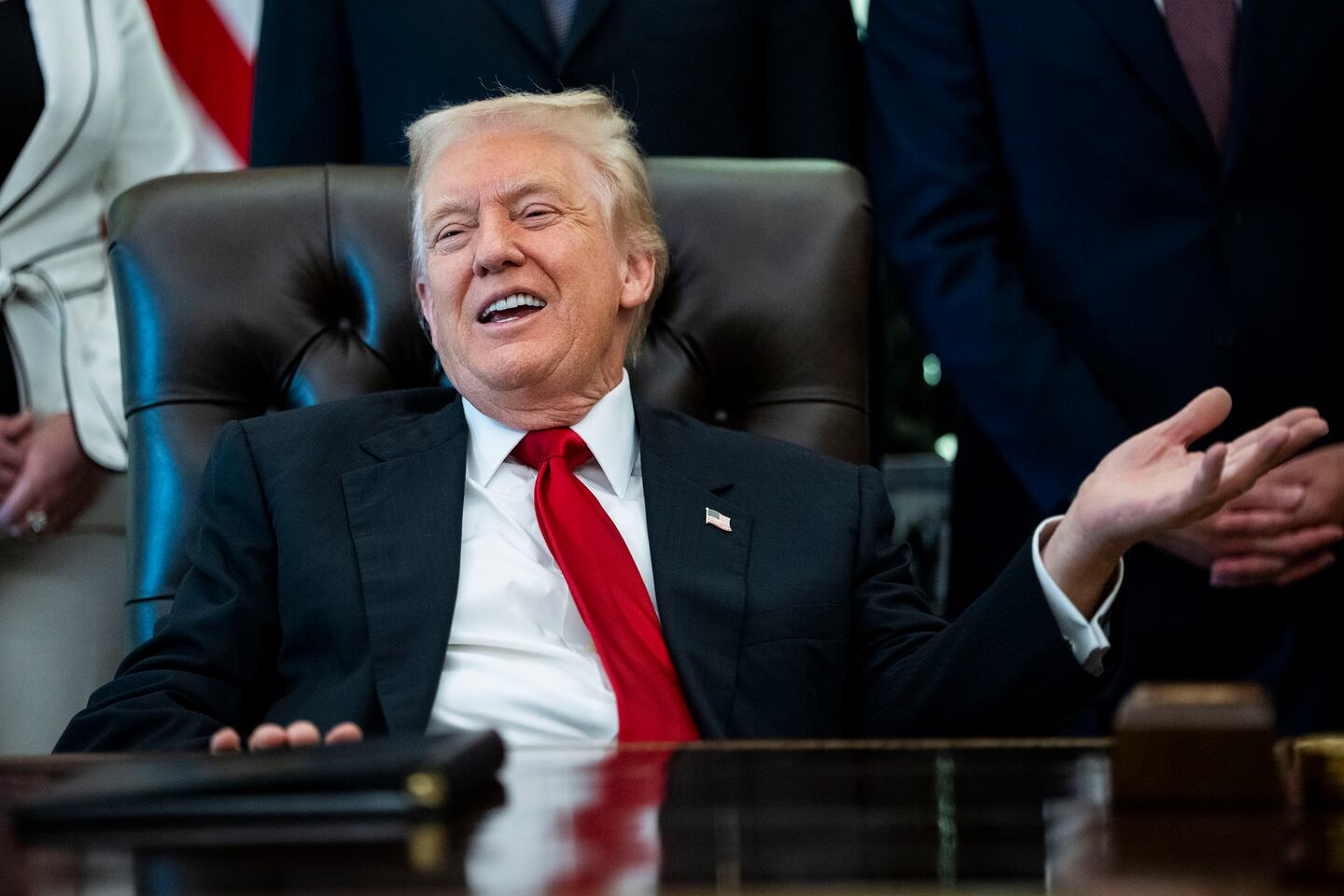Copyright The Boston Globe

“We want a health care system where we pay the money to the people instead of the insurance companies,” he told reporters in the Oval Office on Monday. “We’re going to be working on that very hard over the next short period of time.” Trump’s statement highlights the pressure on Republicans to articulate their own vision to improve the affordability of health care now that the subsidies that millions of people rely on to pay for coverage are set to expire by the end of the year. Like Trump, Republicans in Congress who have spent years attacking Obamacare have not offered up a serious alternative, since their failed effort to repeal the law in 2017. The White House declined to provide more details of Trump’s latest idea. But the proposal assumes that giving patients a bigger role in purchasing their care will lead to lower costs and better health outcomes. The evidence that such an approach could significantly lower costs is not strong. Most health spending goes to very sick people who don’t have much choice in the care they receive. Research suggests that financial incentives and information about prices can shape behavior for patients seeking elective care. But that kind of spending is a small share of the country’s health care bill. Millions of Americans who will lose access to subsidies when the current formula expires are looking at a jump in premiums, in some cases hundreds of dollars a month or more. The Congressional Budget Office estimates that 2 million Americans will lose insurance altogether next year as the prices rise. Trump seems to be arguing that the subsidy money should not be used to help people buy insurance, but rather be offered to the same people in special accounts. Extending the extra subsidies would be expensive, costing $23 billion next year and nearly $350 billion over the next decade, according to the budget office estimate. But even without them, most consumers can still get some help paying their insurance premiums through tax credits established under Obamacare. The Affordable Care Act, which became law in 2010, has been attacked since its inception for failing to constrain health costs, which are higher in the United States than in other rich democracies. But its expansion of health coverage to tens of millions of Americans who would otherwise lack coverage has made the law popular. Democrats expanded funding for people who buy their insurance during the pandemic, leading to a surge in new insurance signups. It is these added subsidies that are on the line now. Democrats have embraced health care costs as a central issue this year, mindful of Trump’s first term when he tried — and failed — to repeal and replace Obamacare. It was an early and messy defeat for him. Republicans in Congress, who had rallied around the cause for nearly a decade, were unable to agree on a substitute. Democrats ran campaigns focused on the legislative debacle and took back the House the next year. Democrats forced the government shutdown over health care costs, insisting that Republicans extend extra subsidies that help people pay insurance premiums and that Republicans reverse the recent cuts they made to Medicaid. Republicans have said such an extension does not belong on a spending measure, and some have argued that Congress should let the subsidies expire. The handful of Democratic senators who agreed over the weekend to end the shutdown extracted a promise from Republican leadership for at least a symbolic vote on extending the subsidies next month. But the effort has succeeded in thrusting the challenges Americans face in paying for health care into the political spotlight at a time when Trump would prefer to focus on other things. For the most part, Trump’s policy efforts on health care have tended to focus on ancillary issues, such as improving the transparency of health care prices, reducing the supply of illegal fentanyl, and requiring drug companies to offer discounts to patients who buy prescription drugs with their own money. His health secretary, Robert F. Kennedy, Jr., has had little to say about how to improve the affordability of insurance coverage, and instead often focuses his attention on topics like vaccines or encouraging a healthier diet. Republicans in Congress have floated some ideas. Their major tax and domestic policy bill cut nearly $1 trillion from Medicaid -- about half by scaling back Obamacare’s expansion of coverage to the working poor. Some lawmakers continue to talk about Obamacare replacement approaches, though the issue has lost prominence in recent years. This week, Sens. Rick Scott of Florida and Bill Cassidy of Louisiana expressed enthusiasm in proposals similar to Trump’s idea. Trump supported the health care cuts passed this summer, but he frequently downplayed the scale of the changes, inaccurately saying they were narrowly aimed at eliminating fraud.



